
Our Current Projects

Removing Barriers to Trust Building
Proposals to Rebuild Trust Between Governments and Communities
Trust is the glue that holds society together. The decline of trust in government and the institutions of civil society is one of the gravest issues facing Australia today. The decline of trust in civil society is linked to the rise of a widespread sense of grievance. One reason that this is so serious is that a feeling of grievance is one of the things that fuels extremism.
Governments cannot ignore this crisis. However, there are some actions they can take.
This Report builds on the 2024 Do Governments Trust Communities? The Trust Flows Project Research Report.

Mapping codesign and codelivery of CVE initiatives in Victoria: lessons learnt to tackle emerging violent extremist threats
The core of building resilient and inclusive societies is for local communities to develop customised approaches based on their own understanding of the risks with which they live and the assets and capacities they bring to coping with challenge, threat, and adversity.
Co-design is based on the understanding that building increasingly self-aware and self-mobilising communities will, in the future, see a reduction in reliance on Government led top-down intervention to complex social policy issues.
While Government remains an important actor in countering these trends, policies and programs from the past few years shows that community capacity building is likely to have a more sustained impact.
Our Completed projects

Publications
Co-design is the most powerful approach available to government agencies that aim to create sustainable programs, policies, and services that genuinely reflect the needs and experiences of communities. This project explores how co-design is understood and practised between the Victorian State Government and multicultural communities—what enables it, what constrains it, and how current approaches can be strengthened to create more equitable, enduring, and community-led partnerships. Led by the Centre for Resilient and Inclusive Societies in partnership with the Australian Multicultural Foundation, the study focuses on the experiences of Community Support Groups funded by the Victorian Government. The study illustrates how co-design is experienced at the community level and how government can better support this work.
Trust emerged as central to effective co-design, but trust cannot be assumed. It can be built through long-term relationships, cultural responsiveness, and a genuine shift in power. The study’s findings show that co-design works best when communities lead, when trusted local organisations are resourced to act, and when governments commit to flexible, sustained partnerships. When co-design is rushed or controlled from outside communities, it risks reinforcing the very gaps it aims to close. To support better policy and program outcomes, especially in areas of social cohesion, P/CVE, and community resilience, government agencies can embed co-design and co-ownership together from the outset. This report includes a detailed Practice Guide and a case study to inform and support stronger partnerships between governments and communities.
Trust is the glue that holds society together. The decline of trust in government and the institutions of civil society is one of the gravest issues facing Australia today. The decline of trust in civil society is linked to the rise of a widespread sense of grievance. One reason that this is so serious is that a feeling of grievance is one of the things that fuels extremism.
Governments cannot ignore this crisis. However, there are some actions they can take.
As this report shows, trust is built—or broken—through behaviour. To meet today’s challenges, we need practical, sustained efforts to embed trust building across government-community relationships. This report extends on findings from the 2024 Trust Flows project report. The findings from this study offer grounded, actionable strategies for rebuilding trust between governments and communities, recognising that trust is shaped not only by policy but by processes, consistent behaviours, reciprocity, and sustained relationships.
This report proposes four priority actions:
· Improve access to government systems by simplifying language and processes.
· Invest in community capability through support, governance training, and equitable access.
· Equip government officials with training to build and maintain trust with communities.
· Establish a Trust Lab to lead innovation and embed trust-building across institutions.
These actions are preventative, not reactive. Clearly, there are some external factors, such as international malevolent actors, that seek to undermine Australian society. However, governments in Australia should look to increase investments in social cohesion and institutional legitimacy at a time when both are under pressure.
While not a new phenomenon, Victoria has seen a resurgence of far-right activity both offline and in online space since the mid-2010s (Parliament of Victoria 2022). This has profoundly changed the landscape of violent extremism in the state and across Australia, as reflected in successive ASIO threat assessments (2021, 2022, 2023) that have highlighted a threat of violence from far-right violent extremist milieus. These changes have created new challenges for countering violent extremism (CVE) practitioners across government agencies, law enforcement, and intelligence agencies.
Against the backdrop of the rise of far-right extremism and a volatile and evolving threat scenario, this project examined current intervention infrastructure and programs for addressing radicalisation to far-right extremism in Victoria, the strengths of existing intervention capabilities, what gaps exist, and what improvements may be needed to strengthen Victoria’s capacity to prevent and intervene in far-right radicalisation pathways and trajectories.
The research presented in this report offers a review of current Victorian countering violent extremism (CVE) policy and programming, as well as a comprehensive literature review of far-right extremist intervention methods and radicalisation pathways. The empirical data collected for the study comprises 22 expert interviews with civil society and government stakeholders from Victoria, other parts of Australia and overseas. Based on this multi-method research, this report provides original insights into key features, strengths and gaps in Victoria’s current intervention capability in the context of far-right extremism. It also explores how these capabilities can be further developed and strengthened, for example by drawing on other national or international intervention approaches and tapping into community partnership opportunities.
In Australia as elsewhere, violent extremist actors have exploited and instrumentalised a contested information environment during concurrent crises in 2020-2021 – including the COVID pandemic and natural disasters like the recent bushfires – to mobilise, plot and commit violent attacks, oppose government emergency responses and challenge or undermine social cohesion. Crises of this nature are likely to persist in one form or another; alongside evidence that natural disasters are on the rise (UN/CRED, 2020), there has been an equally unprecedented spread of misinformation and disinformation and contestation of the cause and origins of these crises (Cinelli, M., Quattrociocchi, W., Galeazzi, A., 2020) that will likely persist. Previous research findings have demonstrated that natural disasters like bushfires, hurricanes, earthquakes and pandemics have the potential to act as push factors to violence (Berrebi & Oswald, 2011; Fisher & Dugan, 2019; Kang and Skidmore 2018).
However, little is currently known about how natural disasters can impact violent extremism in the Australian context and in other high GDP countries. The relationship between the potential for conflict and natural disasters and emergencies is largely unaccounted for in disaster and emergency management (DEM) plans within advanced economies and consolidated democracies. Understanding exactly how natural disasters and emergencies can provide fodder for violent extremist groups and contribute to a mobilisation to violence will remain important into the future.
Around the world, governments in liberal democracies are increasingly worried by the decline of public trust. The question that is often asked is why individuals and communities have declining trust in government institutions. However, the reverse question – whether governments trust communities, and if not, why not – is far less frequently explored. A relationship of trust involves one party trusting another, and that trust being returned. One key quality of trust is therefore reciprocity. For a successful trust relationship to be created and maintained it must be reciprocal. Trust must flow both ways – not just from communities to government but from government to communities.
This Report examines trust relationships between government and communities that play a role in developing resilience to social harms. The particular focus is on the areas of disaster recovery, emergency response and dealing with violent extremism, and the ways in which government officials implement related programs and policies. The aim of the project is to support government officials and community leaders and members in creating and sustaining the trusting relationships that are needed to deliver these types of resilience building programs.
This research report has been conducted by an NGO called Love Frankie and funded by USAID and contains insightful new research (English and Bahasa) from Love Frankie with USAID on Indonesian youth resilience to violent extremism featuring the BRAVE measure.
Michele Grossman (lead), Greg Barton, Dr Vivian Gerrand, and Michael Ungar (a CRIS Consortium partner).
This report presents bias indicators for the Australian context and discusses their concept, uses, benefits and risks. The bias indicators we present are the result of extensive consultations with local experts including academics and practitioners working in law enforcement agencies, government and non-government organisations and community organisations. We aimed to make sure that the list would be practical and relevant to practitioners working in the fields of hate crime and hate speech.
Matteo Vergani, Angelique Stefanopoulos, Alexandra Lee, Haily Tran, Imogen Richards, Dan Goodhardt, Greg Barton
This report provides important evidence for all stakeholders involved in tackling hate in Victoria, including policy makers, law enforcement agencies and community organisations, to better understand how to address community reporting barriers.
Dr Matteo Vergani & Dr Carolina Navarro
This report is a first in Australia to make sense of the exceptional fragmentation and lack of coordination of responses to hate crimes, hate speech and hate incidents across the country
Dr Matteo Vergani & Rouven Link

CRIS Conference 5-7 October 2021 | Online
Paul Giannasi OBE, Police Hate Crime Policy Lead, National Police Chief's Council
The racially motivated murder of black student Stephen Lawrence, in 1993, was a watershed moment for policing in the UK. When the subsequent inquiry found that the police force was "institutionally racist", there were major changes to policing, and community approaches to racism.
Paul has 30 years of policing experience and led the cross-government hate crime programme for 12 years, where he was responsible for creating new relationships between police, the state and communities to combat hate. Currently the national Police Hate Crime Policy Lead, In this keynote address Paul explains how police and community use “Critical Incident Gold Groups” to set action plans in response to serious incidents at home and overseas. Collaboration between government, nongovernment and academics has lifted the quality of existing data about hate crime, hate incidents and hate speech, to the benefit of all parties and most importantly, of UK communities. The meaningful, trusting relationships between police and non-government organisations have been formalised in Information Sharing Agreements enabling partners to tailor solutions to critical societal problems.

CRIS Conference 5-7 October 2021 | Online
Ro Allen, Victorian Equal Opportunity and Human Rights Commission
Session Chair: Dr Matteo Vergani, Deakin University
Ro commenced their role as Victoria’s Equal Opportunity and Human Rights Commissioner on 1 June 2021. Ro brings more than 25 years of experience in community services, governance and social justice, and has a deep commitment to equality and a broad experience in strategic advocacy. In this panel, Ro will discuss their plans to empower existing – and establish new – collaborations with communities, and the Commission’s plans to tackle hate against a wide range of target groups.

CRIS Conference 5-7 October 2021 | Online
Dr Philip Jefferies, Dalhousie University
Session Chair: Dr Matteo Vergani, Deakin University
Within the growing interest in the study of resilience, there is an increasing interest in measurement. But there are as many different approaches to quantifying resilience as there are ways of conceptualising it. Should we limit ourselves to just a direct assessment of how much a person perceives they can ‘bounce back’ from adversity? Or should we consider specific risk and protective factors that might enable a person or community to demonstrate resilience? And what score must a person or community achieve to be considered ‘resilient’? This discussion provides a review of options for measuring resilience as well as a discussion of their utility in different situations. Contexts include individuals and communities experiencing acute crises as well as ‘everyday’ adversities.

CRIS Conference 5-7 October 2021 | Online
Professor Nicole Asquith, University of Tasmania
Peter Wertheim AM, Executive Council of Australian Jewry
Josh Bull MP, Co-Chair of the Victorian Anti-Racism Taskforce
Session Chair: Professor Greg Barton, Deakin University
In this panel session, moderated by Prof Greg Barton, we will explore why a database of hate behaviours can contribute to advance fairness, equality, respect and understanding. Panellists will include Prof Nicole Asquith, Director of the Tasmanian Institute of Law Enforcement Studies and Secretary of the Australian Hate Crime Network, and Mr Peter Wertheim, co-CEO of the Executive Council of Australian Jewry. The panellists will discuss how a database of hate can be useful to academics, civil society organisations and government.

Dr Matteo Vergani discusses quantitative and qualitative data methods.

Dr Matteo Vergani hosts the discussion: ‘Towards a national system for classifying and recording hate crimes in Australia’ with speakers Senator the Hon Kristina Keneally, Mr Luke Cornelius APM and Race Commissioner Mr Chin Tan.
National security is not a zero-sum game. If the past two decades have taught us anything about breaking the cycle of terrorist violence, it is that in the longer-run, treating people well – upholding justice and acting with compassion and humanity – keeps everyone safer.
Mark Duckworth writes on trust as one of the themes running through emergency management diversity and inclusion and resilience policies in Australia and New Zealand. Are diverse communities seen as problems rather than as trusted partners with agency to design their own outcomes?
Protests against Victoria’s proposed pandemic bill are made up of a mix of groups, but Dr Josh Roose, an expert in far-right extremism and conspiracy theories, explains why their roots are particularly worrying.
Preventing or countering ‘violent extremism’ (P/CVE) is a highly contentious field that has increasingly characterised counter-terrorism policy, in the UK and internationally, over the last 20 years. Joel Busher, Tufyal Choudhury and Paul Thomas assess the implications of current efforts to ‘mainstream’ P/CVE into other policy areas.
CRIS Researcher, Dr Josh Roose, discusses the recent protests in Melbourne and provides context to the far-right element of the anti-vax movement and suggests three approaches to moving forward.
A parliamentary inquiry into violent extremism should call on tech companies to reveal their recommendation algorithms.
Mark Duckworth discusses the new National Recovery and Resilience Agency and makes the case for strong community partnerships to co-design programs and projects.
In a world contaminated by all manners of chemicals and ravaged by climate change, it is unsurprising that wellness and detox practices have broad appeal.

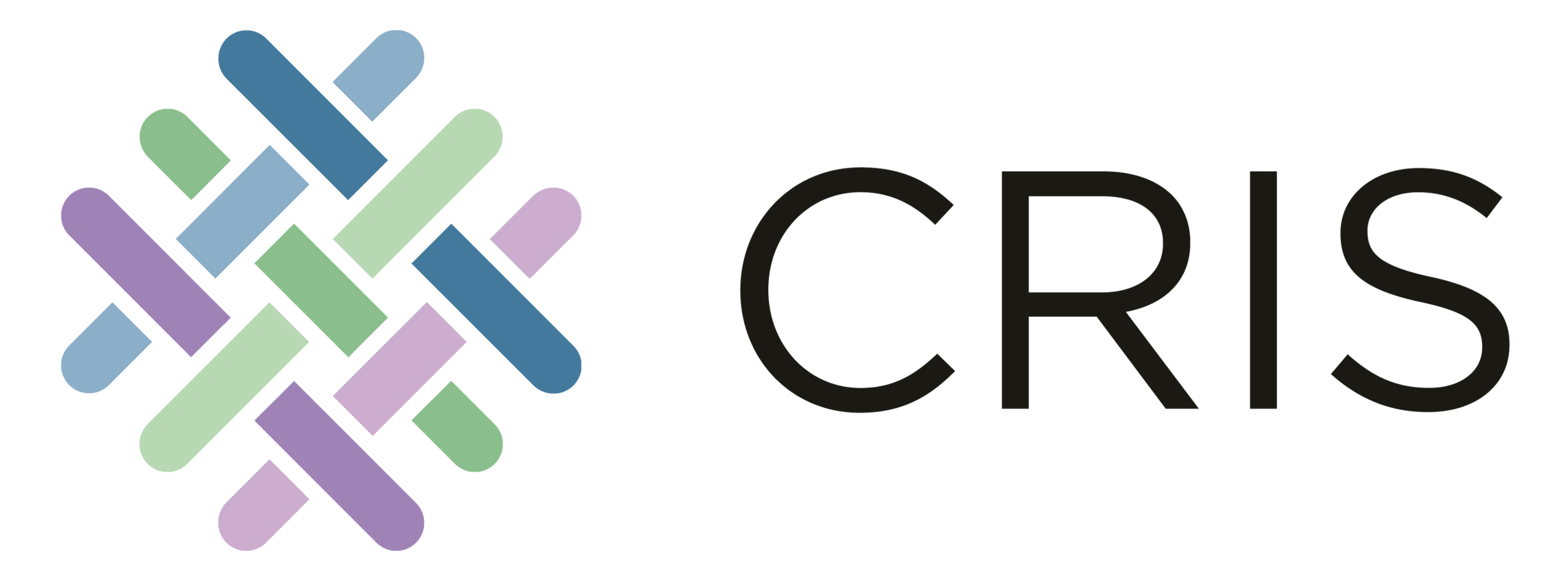









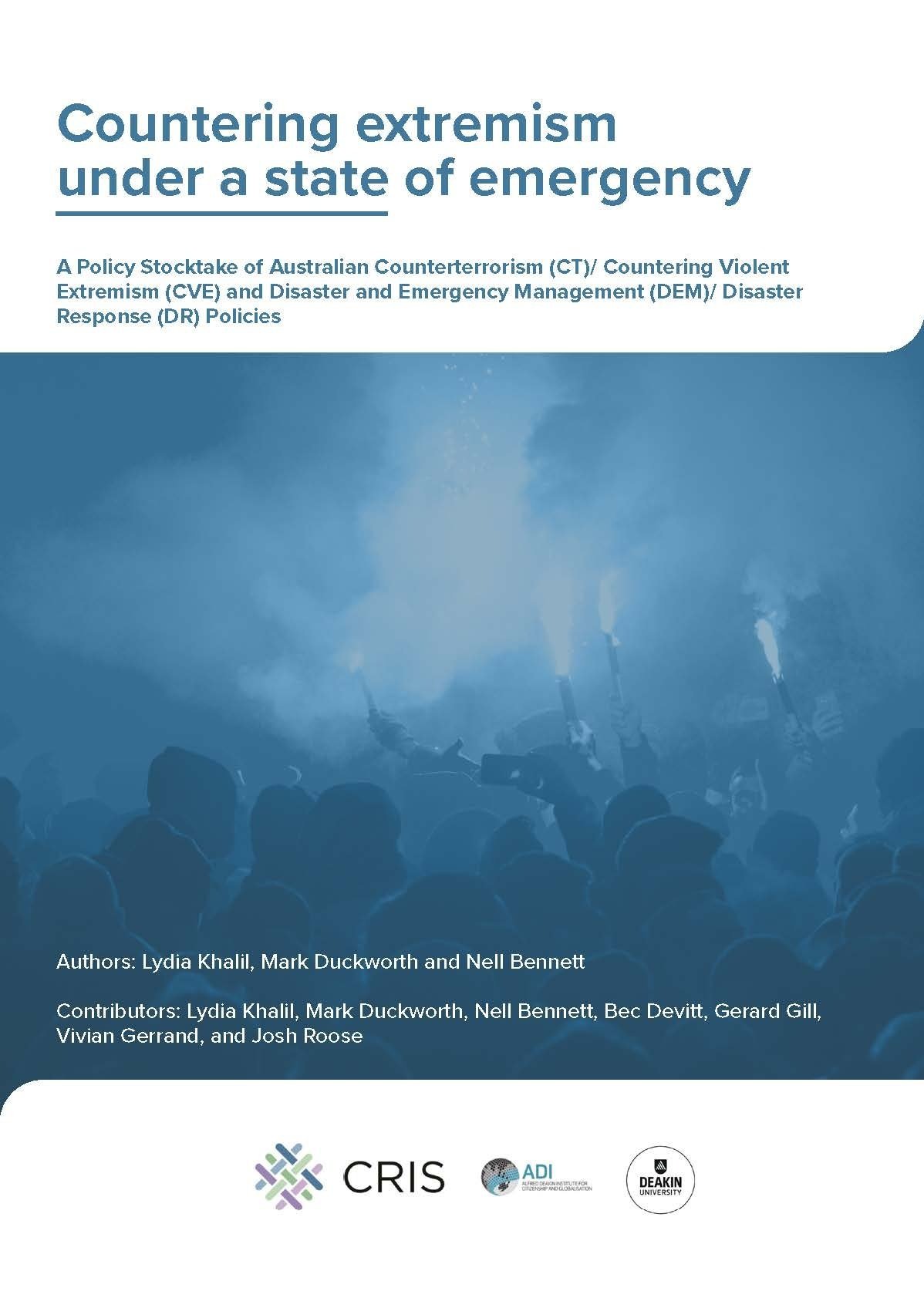


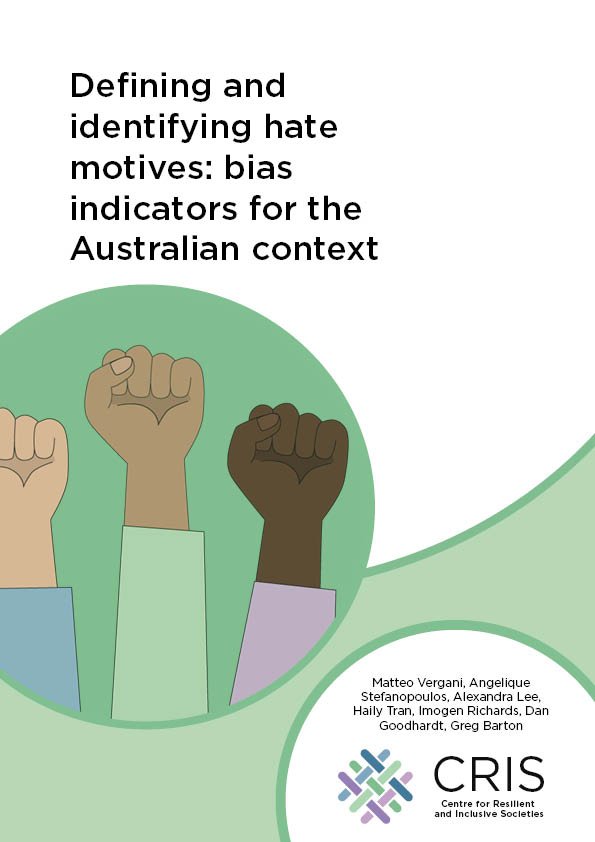
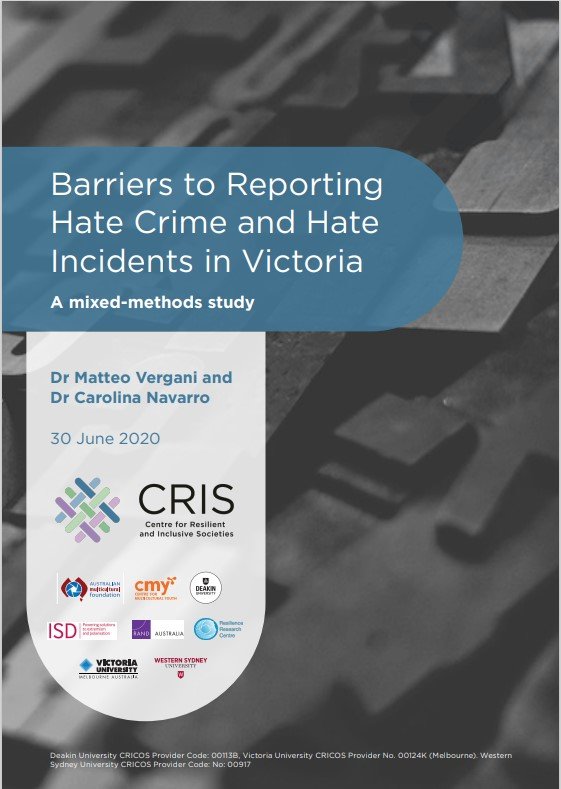




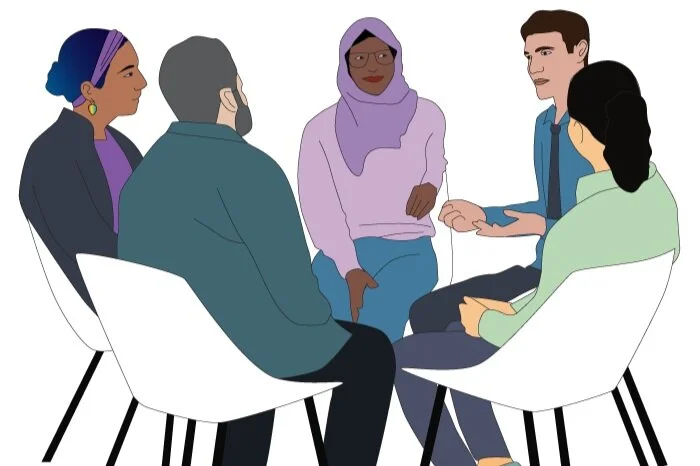





Social cohesion is often talked about as a measure of how well a society or community is placed to resist or mitigate the likelihood of violent extremism taking hold. But what do we mean when we talk about ‘social cohesion’ in relation to violent extremism? And what is the role of young people in fostering the kinds of social cohesion and social futures that can make a positive difference when it comes to building healthy communities that can resist appeals to violent radicalisation?